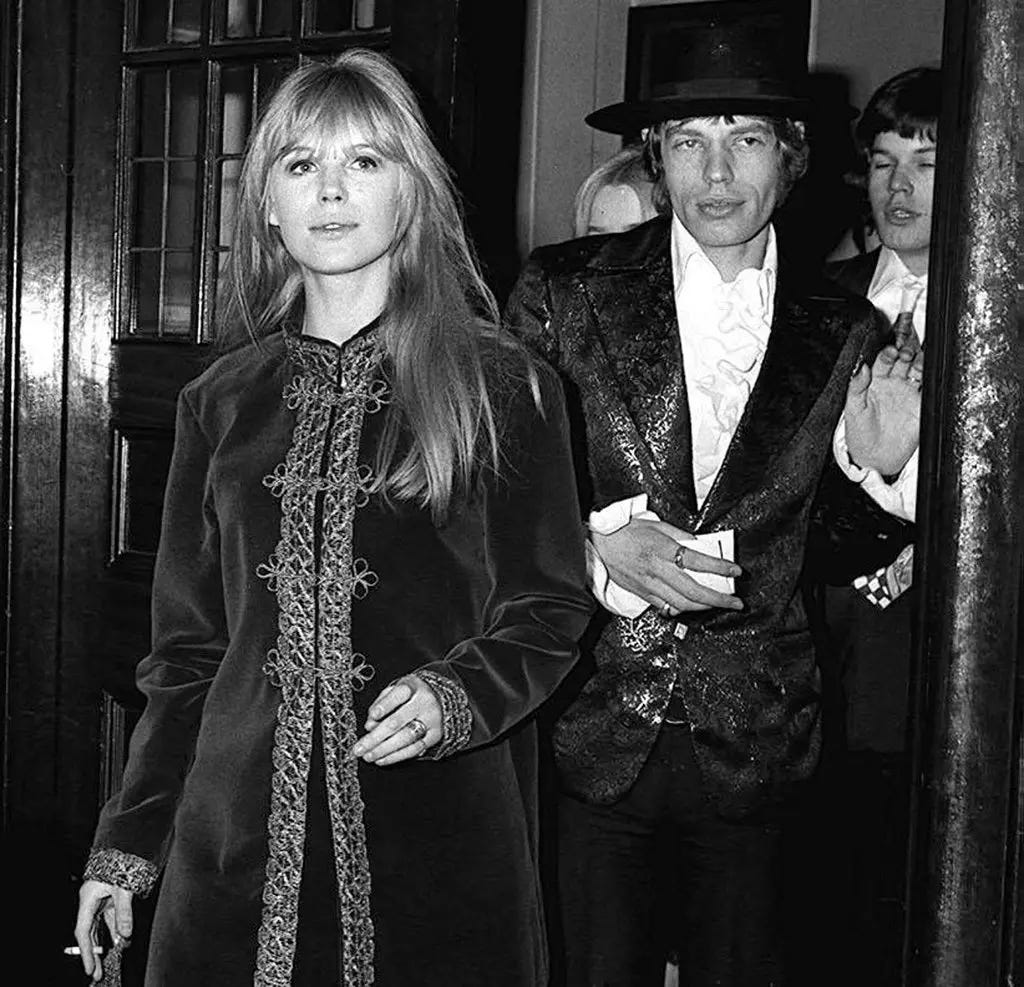FEW REPRESENTED better the bohemian life, in all its dark beauty and dangerous glamour, than the English singer and writer, actor and muse, Marianne Faithfull, who has died at the age of 78.
She stood strongly for that tradition of European woman, a femme fatale in many ways, who proves irresistible to powerful man but determines a course which is passionate, fiercely independent and unsentimental. Faithfull appeared to be all three.
Her career, like her biography, was erratic, on occasions effortlessly triumphant and critically acclaimed yet sometimes chaotic and unravelling. She sang, recorded and performed successfully in her precocious later teenage years in the middle of London’s fevered and frantic 60s.
At 19, Faithfull, who had grown up in suburban Reading, married an established art gallery owner called John Dunbar. She had a child with him but then changed romantic course. She became entangled with various Rolling Stones and eventually the lead singer Mick Jagger.
It began uproariously as the effervescent beauty was painted as bad girl to the Stones’ bad boy standing and, before long, Jagger and Faithfull emerged as the most fêted couple on the metropolitan stage as the youthful counterculture set the British establishment quivering.
Pictured above: Faithfull and Jagger in their regal pomp
But, after a speed of sound ascent, a jumble of drug allegations and police busts marked Faithfull as scandalously disreputable even as the capital’s rock aristocracy lived their own decadent lives fuelled by infidelities and psychedelics.
After the Jagger relationship crumbled, she entered a period of worrying decline, addicted to a serious drug diet and heading for the streets and homelessness, an extraordinary turn, from glory to gory, that would have surprised even Hogarth.
Yet this remarkable survivor, who had already enjoyed a Top 10 pop hit with her debut single ‘As Time Goes By’ in 1964 and begun to carve out a CV centred on dramatic roles, whether in the cinema or theatre, managed to find sufficient self-belief to start over, finally commencing a sequence of distinctive solo albums with 1976’s Dreamin’ My Dreams.
Existing through her period in the near gutter yet never losing her interest in the power of literature, poetry and the lyric, she returned to the professional fray and gradually the limelight as she assumed the role of poster girl for an edgy and authentic boho experience. Her links to American Beat novelists and poets almost inevitably followed.
Connecting again with Allen Ginsberg, she became a good friend and actually gave classes at the Jack Kerouac School of Disembodied Poetics at Naropa in Boulder, Colorado, in the later 1980s.
She also appeared on Gregory Corso’s spoken word album Die on Me, a Hal Wilner-produced tribute record of 2002, released a year after the poet’s death.
Her exchanges with William Burroughs on the subject of heroin were also noted for their sparky candour. After his death, she appeared as the devil in a 2004 production of his musical work The Black Rider, a musical conceived with Tom Waits.
Her own progress was given a shunt in a very positive direction when Faithfull released her collection Broken English in 1979, an album which distilled the post-punk spirit – bleak in some aspects, spare in production, but emotionally potent – and even earned a Grammy nomination. The new wave chanteuse was truly back in business with important reviewers on her side. Including her earlier more commercially-conscious LPs, she would eventually issue over 20 albums.
With Faithfull’s musical status much-restored, she would, in the decades to follow, make links with a number of key movers and shakers on the UK rock scene and beyond, collaborating with high profile individuals such as Nick Cave and Jarvis Cocker, PJ Harvey and Damon Albarn.
Able to cast off her heroin addiction by the middle 1980s, the victimhood that appeared to be almost her fate and legacy was largely dispelled and she entered a period of fresh confidence. It would be too Freudian to suggest that the psycho-sexual tendency called masochism – named after one of her Austrian aristocratic ancestors – had been willed upon her.
Instead, healthy again after years under the narcotic cosh, Faithfull emerged as a legitimate and autonomous artist transcending original notions that she was merely a nubile inspiration for the male rock fraternity.





I sit and watch as tears go by.. a symbol of my halcyon youth - as the old surrealist axiom proclaims:the only thing forbidden is to forbid..an elegant elegy- our fallen heroes did not live and die in vain- they live on in music, cinema and literature in sweet memories of dulcet kisses and everlasting friendship- sleep and dream forevermore beautiful Princess
A superb and heartfelt tribute in its own right, Marc. Thank you for saying those things.